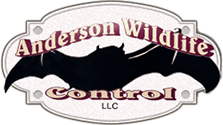 As winter starts to creep up on Connecticut it’s time for homeowners to prepare for the chance that small animals may start to invade their homes. As the weather gets colder small critters, including skunks, squirrels and raccoon’s will start to seek out warm shelters. Basements and attics are ideal locations for these animals and if your home is not properly sealed, you can expect some unwanted guests this season.
As winter starts to creep up on Connecticut it’s time for homeowners to prepare for the chance that small animals may start to invade their homes. As the weather gets colder small critters, including skunks, squirrels and raccoon’s will start to seek out warm shelters. Basements and attics are ideal locations for these animals and if your home is not properly sealed, you can expect some unwanted guests this season.
Skunks and raccoons can be quite a dangerous hazard. Not only is there a chance that these critters are rabid but they are also quite capable of doing extensive damage to your home. If left alone these animals will tear at the floorboards and walls and try to create comfortable nests using whatever they can rip into. The longer these animals are left alone the more comfortable they become so it is important to safeguard your home now.
The first thing you should do is do a quick inspection of your home foundation. Look for cracks, holes and torn siding that can be used as an entrance by a small animal. It is important to seal these openings as soon as possible. You may be able to do so by yourself but if the damage is large enough you may want to hire a contractor to get the job done right and ensure there is no permanent damage to the foundation of your home.
After checking the ground level, move up to the roof. Squirrels, birds and bats have a habit of using the gutters and roof to gain access into your attic. Check for torn shingles, holes in the gutter and cracks in the chimney flashing and make note of any areas that need repair.
Another good idea is to do a thorough cleaning of your garage, basement and attic. Small animals love the cover of clutter and if your home is a mess there is a good chance a squirrel or raccoon will use it for hiding. When cleaning wear gloves and have a friend with you since you may come across a few wild animals when moving objects and the last thing you want is to be bitten or scratched by a freighted skunk or squirrel.
For more tips and to rid your home of unwanted critters, call Anderson Wildlife Control:
203-758-0555







